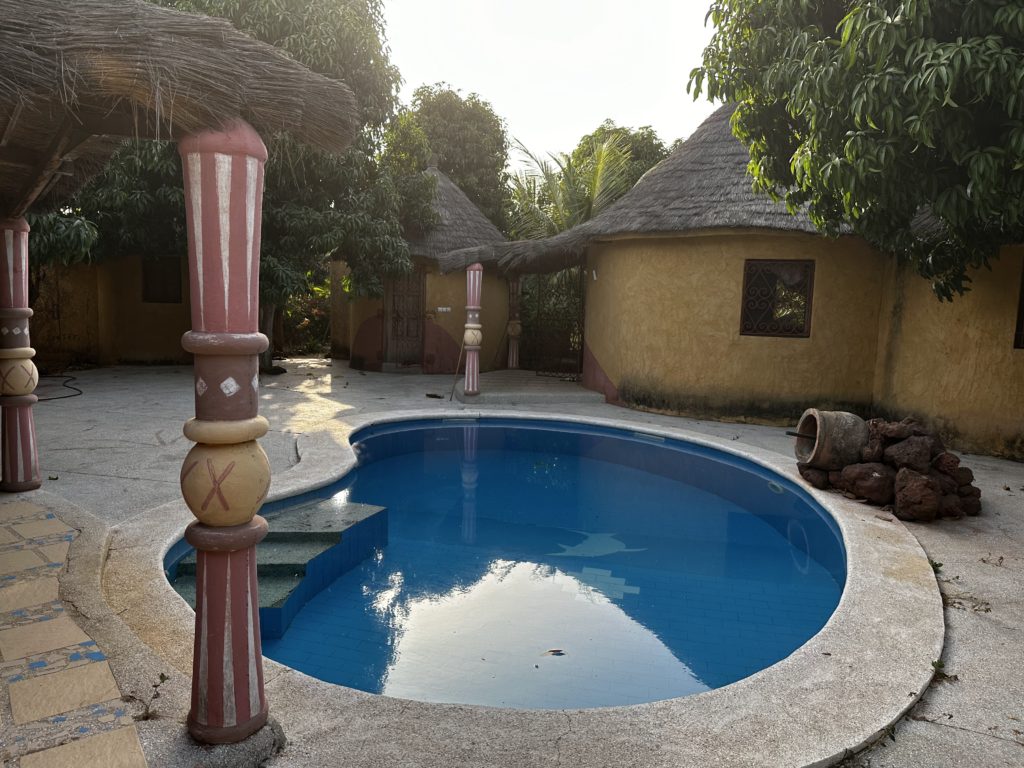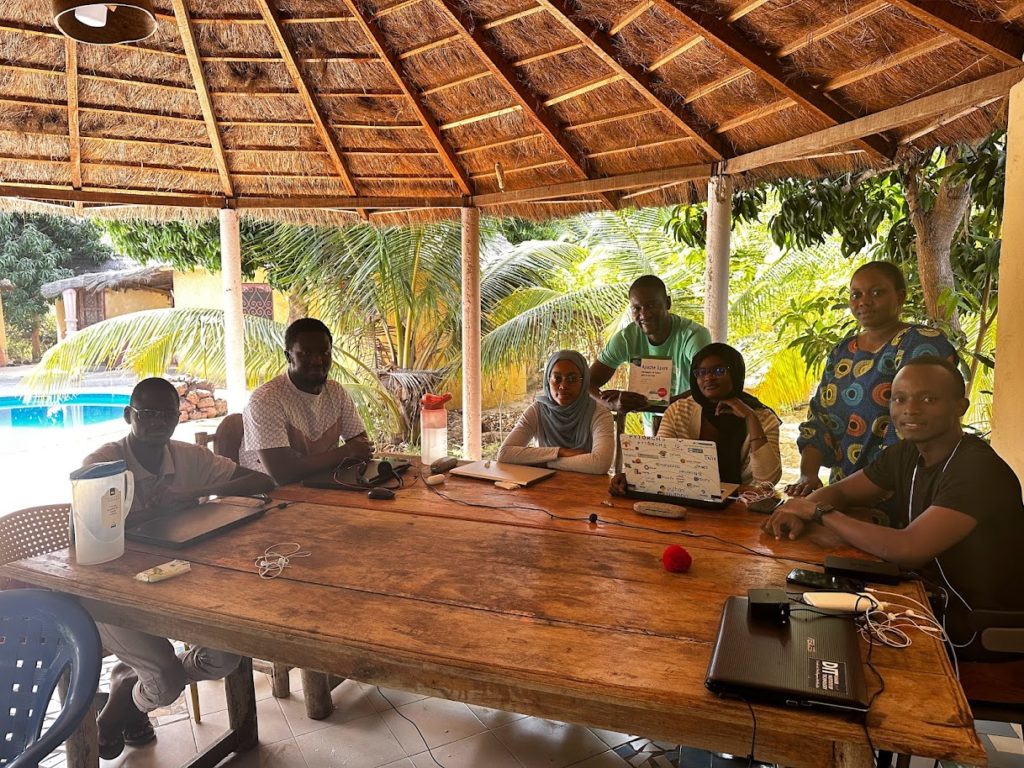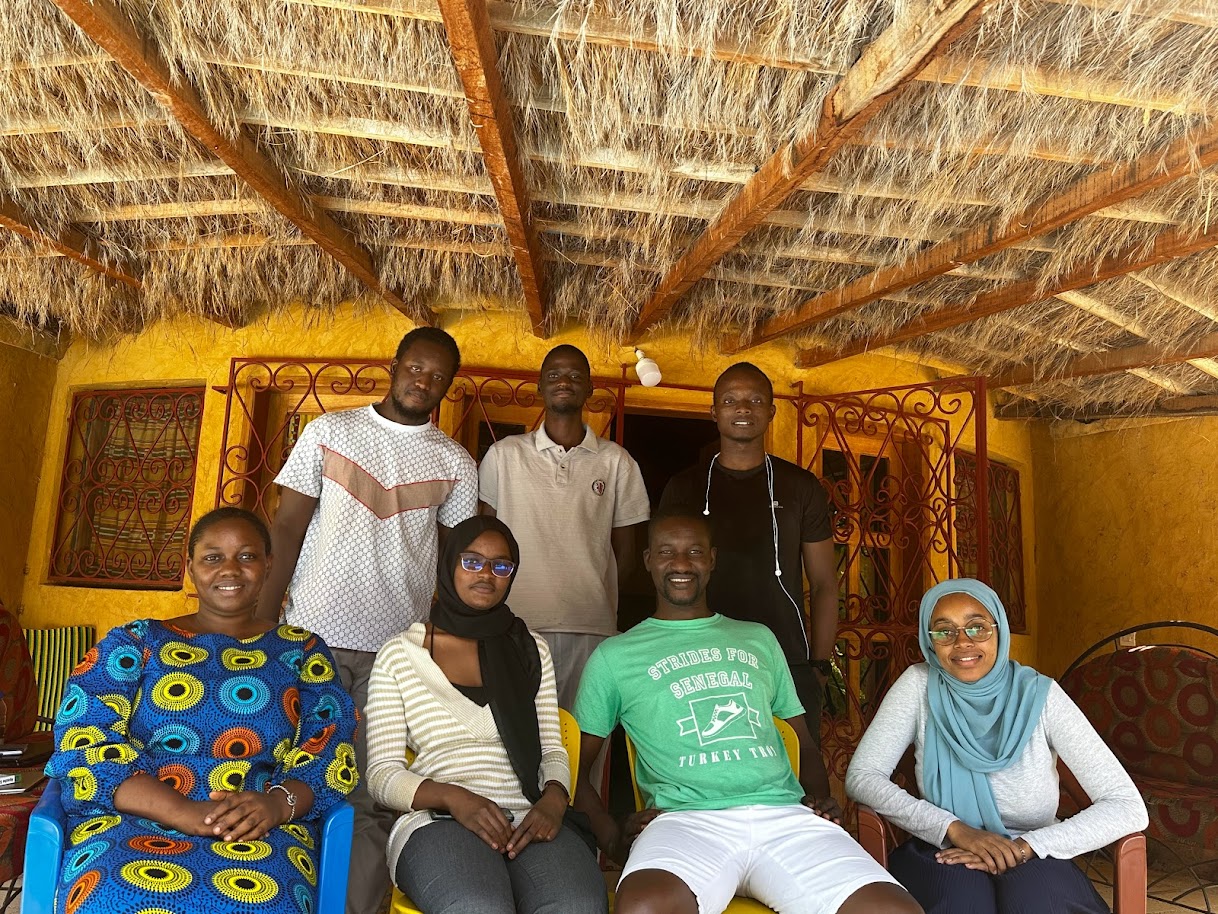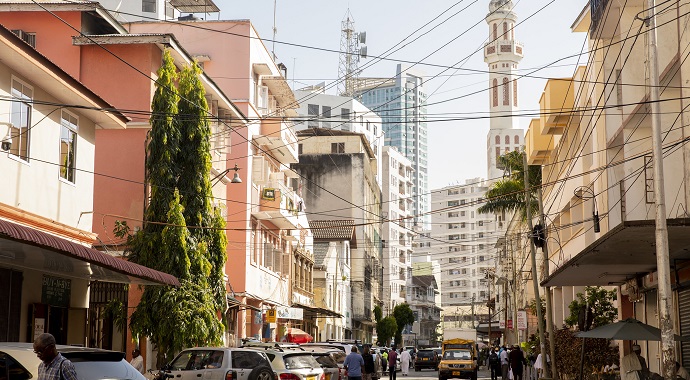EcoFarm, an eco-friendly farm in Fimela, a Senegalese village located about 150 km southeast of Dakar, the country’s capital, has started training the next generation of data engineers in Africa. The farm plays host to a six-month-long data training residency where 30 data engineers from across Africa will strive to advance their skills in machine learning and AI, cloud computing, coding, DevOps, and more. The project aims to create between 30,000 to 35,000 direct and indirect jobs by 2030. TechCabal visited the farm last December to understand what’s behind the lofty ambition coming from this remote village.
Sitting on a 10,000 m2 fenced land, EcoFarm is surrounded by a few buildings and bushes. On the farm’s premises are different trees and crops, including mango, coconuts, lemon, papayes, and more. Three fishponds sit in the center of the farm, facing a mini-ranch. There is a biogas generator that converts animal dung into electricity; it is used mostly to pump water. The farm has a 8-room hut-style hotel, with a pool, and 10 outdoor tents that can host up to 30 people.
“We do not add chemicals to the pool,” Moussa Traoré, the owner of the farm and convener of the data programme, told TechCabal during our tour of the farm. He brushed the surface of the water with his fingers. “We use the pool for three days and then take out the water for the plant.”
Traoré is an engineer and has previously worked in different executive roles at Orange Sonatel, mother company of one of francophone Africa’s top mobile money businesses, Orange Money. He told TechCabal that he resigned from his top-job in Orange to embark on a mission to take care of the earth, which he’s doing via his EcoFarm, planting trees and green foods, rearing animals, and recycling waste products. He is also helping young people to build capacity in tech, which he’s currently doing via the data engineering residency programme. Before this residency, Traoré had supported talent via Innovation House, a deep tech venture studio he founded in 2017 in Dakar; the Fimela Data Residency is somewhat a continuation of what he has always done, except now, he combines it with environmental cultivation—successfully merging two of his ambitions in one place.

Across the pool, in front of one of the huts, is a makeshift classroom where the residents gather for their lessons. During classes, Traoré, in his go-to style of T-shirt over shorts and sneakers, would sit across from the residents and instruct them in French. This is the pilot cohort. They began their residency last November, with six engineers instead of the proposed 30 engineers. This is mainly because they couldn’t raise the $66,000 that was budgeted to run the programme before kickoff day. Now, they only have less than $4,000 to work with. The residents come from Benin, Senegal, Congo, and Comoros, a small island nation in East Africa.
“I love the immersive nature of this programme,” said Boris Danmitondé, a 26-year-old resident from Benin. “Because of our diverse backgrounds, we are able to learn soft skills needed to thrive in an actual working environment,” he added.
For Djoumoi Moinsalima, a 23-year-old Comoros native who left the island for the first time in 2021 to pursue a master’s degree in Dakar, the residency has been life-changing. “The lack of city distraction is the best thing about this residency. We know we’re here to learn, so everybody is focused on that,” she said.

Strengthening Africa’s talent pipeline
General consensus says the world is currently going through an era of technological revolution, and Africa, unlike previous revolutions, is poised to play a critical role in it. But how can it be a key player? Many pundits have said the answer is talent distribution, with a strong conviction that the continent can be the biggest supplier of tech talent to the rest of the world. Being the youngest population in the world, the possibility of this happening isn’t far-fetched, but it’s still a long walk away from victory. The continent must be intentional about creating sustainable initiatives that can build a talent warehouse capable enough to serve eight billion people.
Over the years, Africa has benefited from a few such efforts from big corporations and NGOs to create streams of talent. For instance, Google in 2017 committed to training 10 million Africans on digital skills. In 2021, it said it has reached over five million people and launched paid certification in IT support, project management, UX design and data analytics,, in partnership with Cousera. Microsoft also launched an initiative to digitally upskill 25 million people in 2020; and a year later announced it has helped 400,000 people in South Africa gain access to skills like software development and data analysis. Nigeria’s Ingressive for Good (IG4G) has helped over 150,000 Africans and provided over 2,000 with job placement, according to its website. Even startups are building business models to monetise the talent pipeline and raising venture funds for it. Andela, one of Africa’s seven unicorns, built its entire business on this. Alt School and Kibo School, two distinct newcomers, are building the next set of African tech talent, and have raised $1 million and $2 million, respectively, to scale.
Despite these efforts, and many more, Google put the number of certified software developers on the continent at a little over 700,000 in 2021, a far cry from the 7.2 million software developers from India in the same year. The astronomical growth of the Indian tech ecosystem is partly a reflection of the availability of talent in the country that stemmed from over 205 software engineering schools. These numbers suggest that Africa has a long way to go before it can be the biggest supplier of global tech talent. But Traoré feels differently. He believes the goal should be to build the best, not the most, talent. This informed his decision to cap the number of residency slots at EcoFarm at 30 persons, gathered at a physical location, and not open it up to hundreds of residents per cohort, who would then have to learn online.
“This programme is to strengthen Africa’s talent pipeline by creating the best engineers with a sound entrepreneurial mindset that stand out in the fierce global talent market front,” Traoré told TechCabal.
The Orange ex-boss said he’d like to keep the number of admitted residents small so the programme can focus on the few who get in and accelerate them into world-class talent. Unlike bigger initiatives with deep pockets, running massive digital training programmes, EcoFarm is optimising for the depth and quality of engineers post-training.
Senegalese talent landscape has a familiar problem
Due to persistent brain drain, demand for experienced talent in Senegal has begun to outstrip supply, according to a report by Jeune Afrique. Google reported in 2021 that there are only about 10,000 developers in Senegal. But despite this crunch in the talent pool, Senegal’s digital landscape continues to grow. In fact, the Google report still categorised the francophone county as an “emerging developer landscape trajectory”. “The lag can’t be further ignored and the pool must be revitalised to match the speed of the digital economy,” said Didier Lescourant, a Dakar-based venture builder, who visited the farm while this reporter was there.
The Fimela Data Residency takes the financial burden off its students by taking care of their travel, feeding, housing, internet, and buying gadgets for those who don’t have them. “We want to take away the barriers to learning,” said Traoré.
But this is a huge undertaking, especially as the programme couldn’t even reach its funding goal. Programmes like this aren’t run on goodwill alone; they require a certain amount of financial reserves. Traoré, however, is convinced that the success of this pilot cohort will determine the validity of this programme. At some point, he might have to seek funding in grants or from institutional funds as this crowdfunding method is proving to be inefficient. He feels the world is watching and looking out for signs that the Fimela Data Residency isn’t just another programme that will be abandoned after a few months.
But Traoré is surrounded by people who have faith in him. “If there’s anyone to make this work, it’s Moussa,” said Mathias Léopoldie, co-founder and CEO of Julaya, an Ivorian fintech startup, who was also visiting the farm at the time of this interview with Traoré.





















